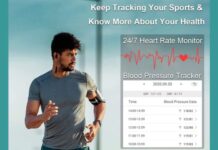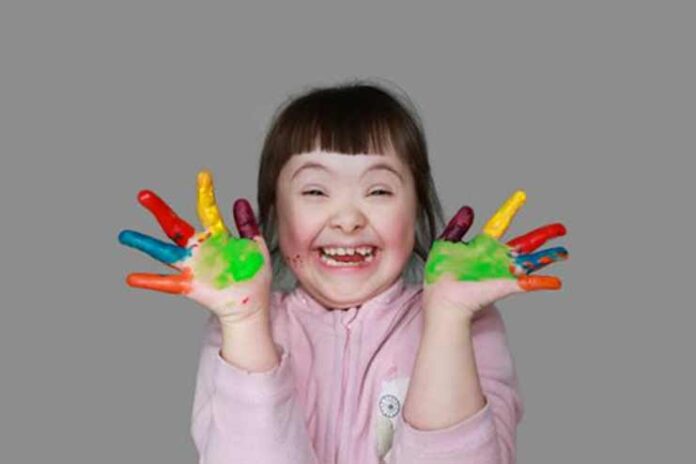Affiliate Disclaimer
Some links in this article are affiliate links. We may earn a small commission if you make a purchase through these links, at no extra cost to you. We only recommend products we find useful to our readersOctober is National Down Syndrome Awareness Month, a time to promote inclusivity and raise awareness for people with Down syndrome. Increasing awareness is important because it fosters an inclusive society that values diversity and encourages funding for continuing study and instruction.
The genetic condition known as Down syndrome, which affects development but does not define a person’s potential or soul, is the result of extrapolating chromosome 21. This month is crucial because it promotes empathy, dispels stigma, and strengthens advocacy.
October is a time to remember that everyone with Down syndrome has abilities and gifts that make the world better. When we promote awareness, we go closer to a community that is more understanding, enlightened, and compassionate.
Myths vs. Facts
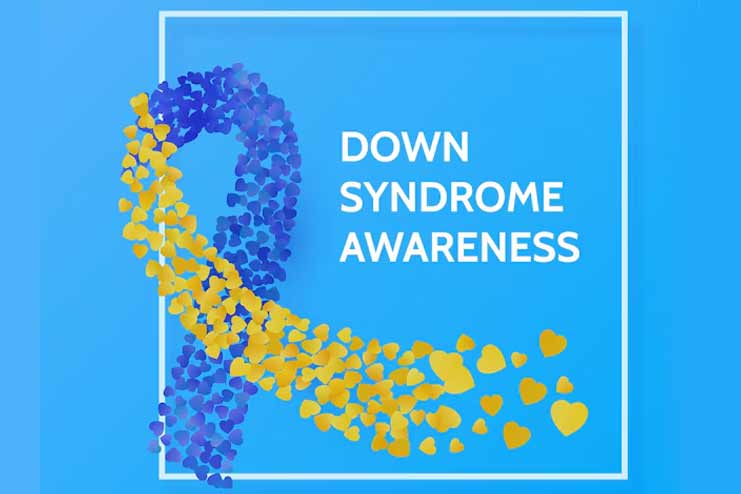
To promote understanding, it’s critical to dispel widespread misconceptions about Down syndrome and offer accurate information.
Myth: It’s rare to get Down syndrome.
Fact: The most prevalent chromosomal disorder is Down syndrome. About 5,100 kids a year, or one in every 772 babies born in the US, are born with Down syndrome.
Myth: Someone with Down syndrome can infect someone else.
Fact: Down syndrome is a hereditary disorder that you cannot acquire after birth; it is an innate part of your genetic makeup.
Myth: Children with Down syndrome are only born to older parents, or it runs in families.
Fact: While the likelihood of having a child with Down syndrome increases with maternal age, around 80% of children with Down syndrome are born to mothers under 35 due to higher birth rates in this age group, according to CDC studies. Down syndrome is rarely inherited, with only about 1% of cases having a genetic link through translocation. In the remaining 99% of cases, the condition is entirely random.
Myth: People with Down syndrome are incapable of becoming self-sufficient.
Fact: Despite the developmental obstacles associated with Down syndrome, many people with the condition lead semi-independent or fully independent lives, working, going to school, and participating in social activities.
Myth: The lifespan of a person with Down syndrome is very short.
Fact: People with Down syndrome now live much longer thanks to advancements in healthcare; many of them reach their 60s and beyond.
The Role of Family: How to Support a Loved One with Down Syndrome
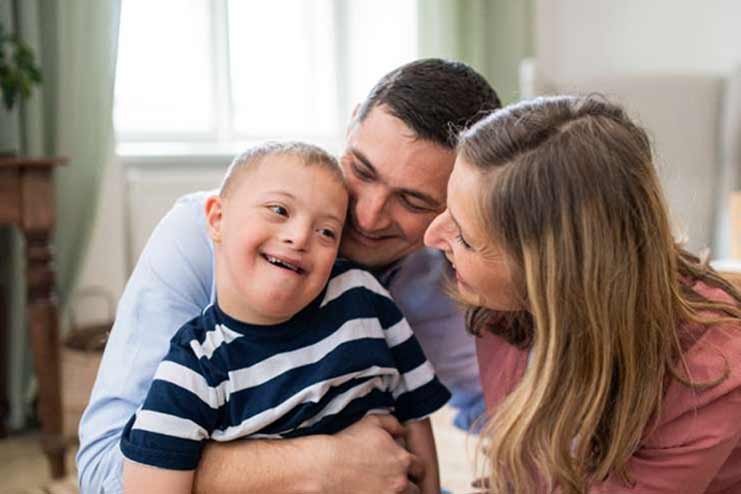
Creating a caring and compassionate environment is the first step in supporting a loved one who has Down syndrome. Emotional support techniques are essential: acknowledge little accomplishments, listen without passing judgment, and promote confidence-boosting social interactions. Family members are critical to developing a positive self-image.
Family members might encourage people with Down syndrome to demonstrate their abilities. When someone’s family holds them in high regard, they can live up to those expectations. Low expectations, however, may restrict a person’s potential.
Making sense of healthcare can be difficult initially, but organizing doctor’s appointments and therapy sessions can help. Maintain a thorough health record, communicate with medical professionals, and follow the most recent treatments and procedures.
Families have the power to ensure the finest learning environment possible through education advocacy. Participate in Individualized Education Programs (IEPs), educate yourself on your loved one’s rights, and ensure they have access to resources specifically designed to meet their learning needs.
Roles within a family may change as responsibilities increase. Open communication and shared caregiving responsibilities can reduce burnout and build resilience within the family.
Educational Resources for Schools
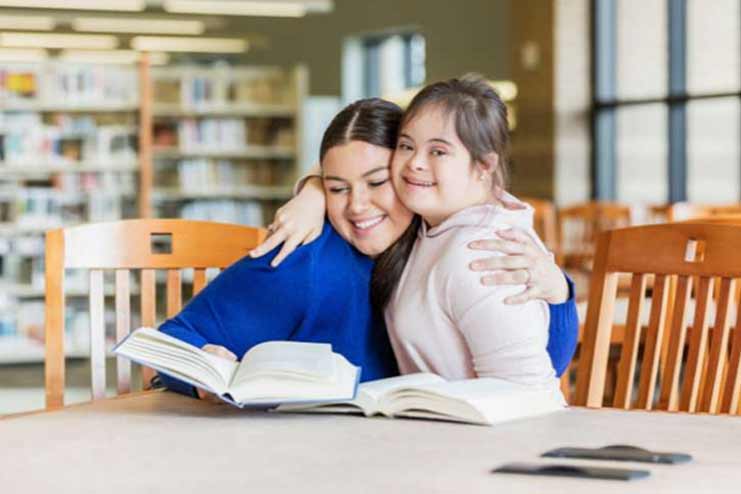
Fostering understanding and acceptance of people with Down syndrome requires schools to provide an inclusive environment. Activities and lesson plans that educate students about Down syndrome have the power to change the dynamic of the classroom. Engaging activities such as storytelling, in which students learn through narratives that highlight the lives of people with Down syndrome, foster empathy and awareness. Interactive dialogues and craft projects can also enhance learning.
Resources on inclusion are beneficial for educators. Websites such as DSE online provide grounded-in-reality and research-supported information and recommendations for children with Down syndrome education and development. They also offer books, teaching materials, applications, and online training courses to assist families, therapists, and educators worldwide in creating meaningful learning experiences.
The National Down Syndrome Society’s (NDSS) Education Program aims to provide families and students with Down syndrome with a range of systemic services. They contend that the right to an education is a fundamental human right and that having the chance to learn is essential to leading a happy life and building a just society. The NDSS education team offers programming, resources, and support for families, educators, and activists as they work to enhance inclusive education nationwide.
Unique Stories That Inspire
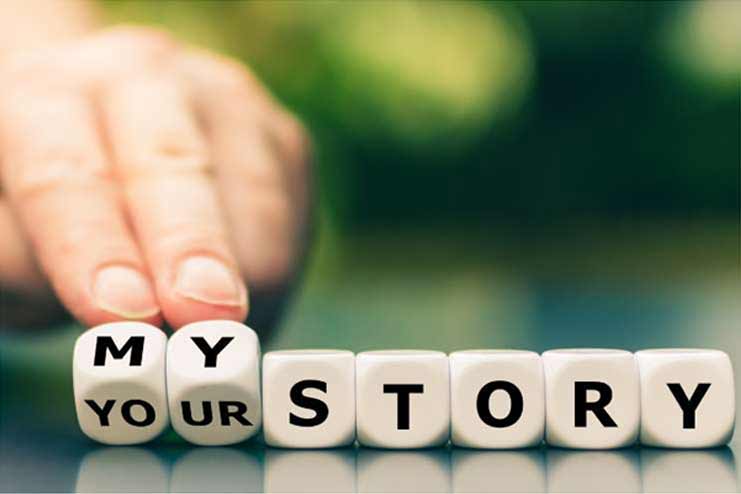
Honoring the extraordinary accomplishments of people with Down syndrome is a potent means of educating and inspiring others. It celebrates the incredible lives of people who have overcome obstacles and significantly improved society. Here are two inspiring stories:
An active 21-year-old from Glen Ellyn, Illinois, Miles Evans works hard. Miles started volunteering at 10 to give back and learn career skills and discovered his interest in restaurants and customer service during high school vocational training. After applying for his first paid job in late 2018, Blackberry Market, a neighborhood café and bakery near his home, recruited Miles.
Miles enjoys bussing tables, serving clients, and other front-of-house jobs. Miles and several of his coworkers could not work during the early stages of the COVID-19 pandemic, but his Blackberry Market bosses brought him back as a valued team member and taught him dishwashing and meal delivery to improve his skills during reduced in-restaurant dining. Miles volunteers as a Lions Club member, arts center usher, track coach, NADS (National Association for Down Syndrome) self-advocate, and congressional campaign intern.
Kelley is 21 years old. He graduated from Riverview High School in 2017. Afterward, he participated in the ACT program at Suncoast Technical College to acquire community and transitional skills. He obtained job experience through STC in retail, custodial, and as a volunteer at a hospital. He obtained employment at Nye’s Cream Shop and Rise Coffee Co. He enjoys meeting new people and brewing coffee. He adores Rise and Nye’s Coffee since they employ individuals with unique skills.
These tales remind us that people with Down syndrome possess unique abilities and aspirations. By encouraging people to share their accomplishments, we can promote a more welcoming and diverse society. See the National Down Syndrome Society for further motivational tales.
Inclusive Activities and Events
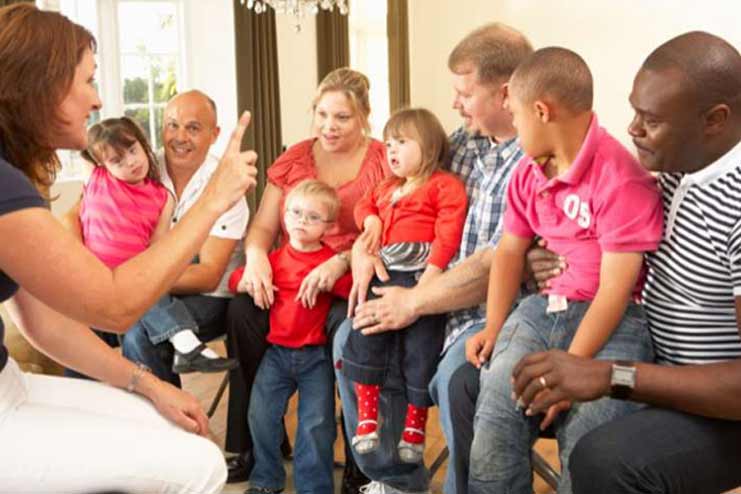
October offers a fantastic chance to participate in inclusive events and activities involving communities honoring National Down Syndrome Awareness Month. Individuals and families can arrange celebrations and understanding-promoting activities using an events calendar. Seek out neighborhood strolls, like the Buddy Walk, where people may walk together, spread awareness, and strengthen relationships. Workshops, webinars, and virtual events offer more venues for knowledge and expertise exchange.
Consider planning fundraising events such as bake sales or craft fairs to engage the community. The proceeds of these events benefit advocacy groups for people with Down syndrome in the area. One way to raise awareness is through art shows that highlight the abilities of people with Down syndrome.
Schools and organizations are essential when it comes to organizing inclusive events. They can write manuals that provide instructions on how to plan workshops, assembly themes, or inclusive sports days for all children. Sites such as the Inclusive Schools Network provide advice and resources on how to make classrooms friendly.
Participating in these events can unite communities to celebrate diversity, advance understanding, and forge enduring relationships supporting people with Down syndrome. If we work together, we can change things!
Conclusion
As we conclude our research into National Down Syndrome Awareness Month, we have emphasized the value of inclusive communities, shared moving tales, and honored accomplishments. But October shouldn’t be the end of awareness. Cultivating acceptance and understanding requires constant advocacy and support throughout the year.
We urge you to become active, whether through neighborhood associations, educational programs, or word-of-mouth communication. Look through the National Down Syndrome Society’s resources and consider volunteering or attending activities that support people with Down syndrome. Together, we can build a more promising and inclusive future!
References
- https://kcdsi.org/awareness
- https://www.texaschildrens.org/content/wellness/josephs-story-down-syndrome-awareness-month
- https://www.linkedin.com/pulse/raising-awareness-down-syndrome-nebraska-department-of-health-and-
- https://www.specialstrong.com/facts-about-down-syndrome-buddy-walk-awareness-and-more
- https://www.specialolympics.org/stories/news/national-down-syndrome-awareness-month
- https://www.dsscotland.org.uk/resources/raise-your-awareness/myths-and-facts
- https://www.nwdsa.org/facts-myths-truths
- https://www.nationwidechildrens.org/family-resources-education/700childrens/2017/03/down-syndrome-awareness-dispel-the-misconceptions
- https://www.globaldownsyndrome.org/about-down-syndrome/misconceptions-vs-reality
- https://ndss.org/myths-truths
- https://www.cdc.gov/birth-defects/about/down-syndrome.html
- https://www.betterhealth.vic.gov.au/health/servicesandsupport/down-syndrome-and-family-support
- https://www.ncbi.nlm.nih.gov/pmc/articles/PMC11139503
- https://pascohh.com/caring-for-someone-with-down-syndrome
- https://www.down-syndrome.org/en-us/library/research-practice/04/3/families-down-syndrome
- https://ndss.org/education-program
- https://www.down-syndrome.org/en-gb/resources
- https://ndss.org/resources/printable-education-resources
- https://ndss.org/success-stories
- https://www.rmdsa.org/be-inspired-stories
- https://www.chop.edu/stories/thriving-down-syndrome-emilios-story
- https://www.grandstrandds.org/inspiringstories
- https://ndss.org
- https://www.dsagc.com/fundraising-events/buddy-walk
- https://ndss.org/national-buddy-walk-program
- https://inclusiveschools.org
In this Article









